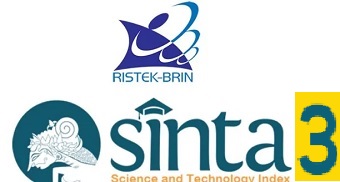Impact of Tropical Environmental Conditions on Mechanical Cooling Tower Performance: A Case Study at PT. XYZ
Abstract
Indonesia's tropical climate, characterized by high ambient temperatures, intense humidity, and frequent rainfall, presents significant challenges for industrial cooling systems. This research investigates how tropical climate conditions influence the operational performance of a mechanical cooling tower installed at PT. XYZ, located in Cileungsi, West Java, Indonesia. The research offers valuable insights into energy optimization and operational planning under varying weather scenarios. Data collection involved real-time measurements under nine combinations of weather and time conditions (sunny, cloudy, rainy; morning, noon, afternoon), using thermocouples, hygrometers, and an ESP32 microcontroller. Key variables observed include ambient temperature, incoming water temperature, outgoing water temperature, relative humidity, and wet bulb temperature. Multiple linear regression was employed for analysis, supported by correlation analysis, t-tests, and F-tests. The model achieved a high determination coefficient (R²) of 80%, indicating strong predictive accuracy. Partial R² analysis revealed that the outgoing water temperature contributed 77% to the variation in cooling tower efficiency, followed by ambient temperature at 65%, incoming water temperature at 54%, and relative humidity at 36%. The highest efficiency, 67%, was recorded during sunny mornings, while the lowest, 42%, occurred at rainy noon. These findings confirm that tropical environmental factors have a significant and quantifiable impact on cooling tower performance. The results are expected to support the development of adaptive and efficient energy strategies in tropical industrial contexts.















